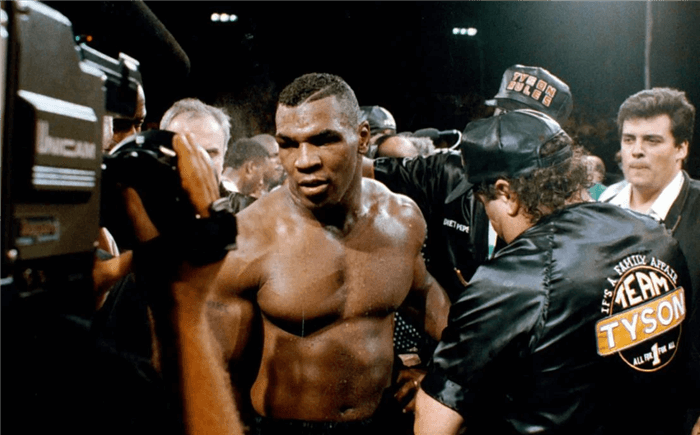Probably one of the reasons why Hotboxin’ with Mike Tyson ranks so high among viewers is the variety it offers in terms of the guests who appear. With every episode, a new personality arrives, offering a fresh perspective. It becomes an unputdownable prospect when Mike Tyson joins in with his tales. So, continuing with the tradition, a neuroscientist joined this week after a slew of entertainers and sportspeople. As one could expect, the conversation tilted heavily towards science. But it did offer a few light moments, especially when it came to boxing, for many fans to cherish.
47-year-old Palo Alto-born Dr. Andrew David Huberman, more commonly Andrew Huberman, is now known across the globe thanks to the surging popularity of his podcast, Huberman Lab. The neuroscience PhD additionally works as an Associate Professor of Neurobiology at the School of Medicine, Stanford University. The conversation with Tyson and DJ Whoo Kid started with the former asking about the quantum universe. The guest clarified that it was a subject outside his purview.

Behaviors are Vital
The trio were soon talking about self-hypnosis. After a while, the discussion moved to mental health issues such as ADHD and medication. Huberman stressed the importance of behavioral treatments while stating the need for medicines wherever required. He said, “If possible, behaviors should always go first: exercise, sunlight, social connection, quality sleep, meditation, stress control—you know these kinds of things, but there is a place for medication when people are struggling.”
He also suggested that parents should seek advice from not one but quite a few good psychiatrists. A few minutes later, Huberman highlighted the importance of social connections and how he loved having striking conversations with random New Yorkers.
The discussion reached Steve Jobs and how he was widely known for displaying ‘erratic behavior.’ He said, “Oh, I mean, you look at the history of re-listening to the uh story of Steve Jobs. I mean, you know, I mean, this guy had some anger in him. He’d do scream therapy. He was into LSD. He was in, you know, and but when it was time for him to work, he could channel all that into his thing…he was known for being erratic, but he also had his ring like his 12-round ring…”
However, it did not take long for the conversation to veer towards boxing.

When Mike Tyson almost went the distance…
Sitting in front of one of boxing’s greatest stars probably affected the famed neuroscientist as he couldn’t help himself from switching over the topic and asking Tyson, “…by the way, I have to ask you this boxing question. Um, I heard that when they moved from 15-round pro fights to 12-round pro fights, a lot fewer guys stopped… is that true? Did you ever fight 15 rounds?”
Soon, laughter could be heard in the studio as Mike Tyson replied, “Well, I was, um, it was supposed to go 15, but it didn’t……” Later, Dr. Huberman explained how he watched a couple of the former champion’s fights in childhood.
Many boxing fans might remember that the transition from 15-round matches to 12-round matches occurred on a tragic note. South Korean boxer Duk Koo Kim, challenging WBA Lightweight champion Ray Mancini, collapsed after the fight on November 13, 1982. Sadly, four days later, he passed away. It soon led to the WBC shortening the matches to 12 rounds. A few years later, other ranking bodies followed suit.
